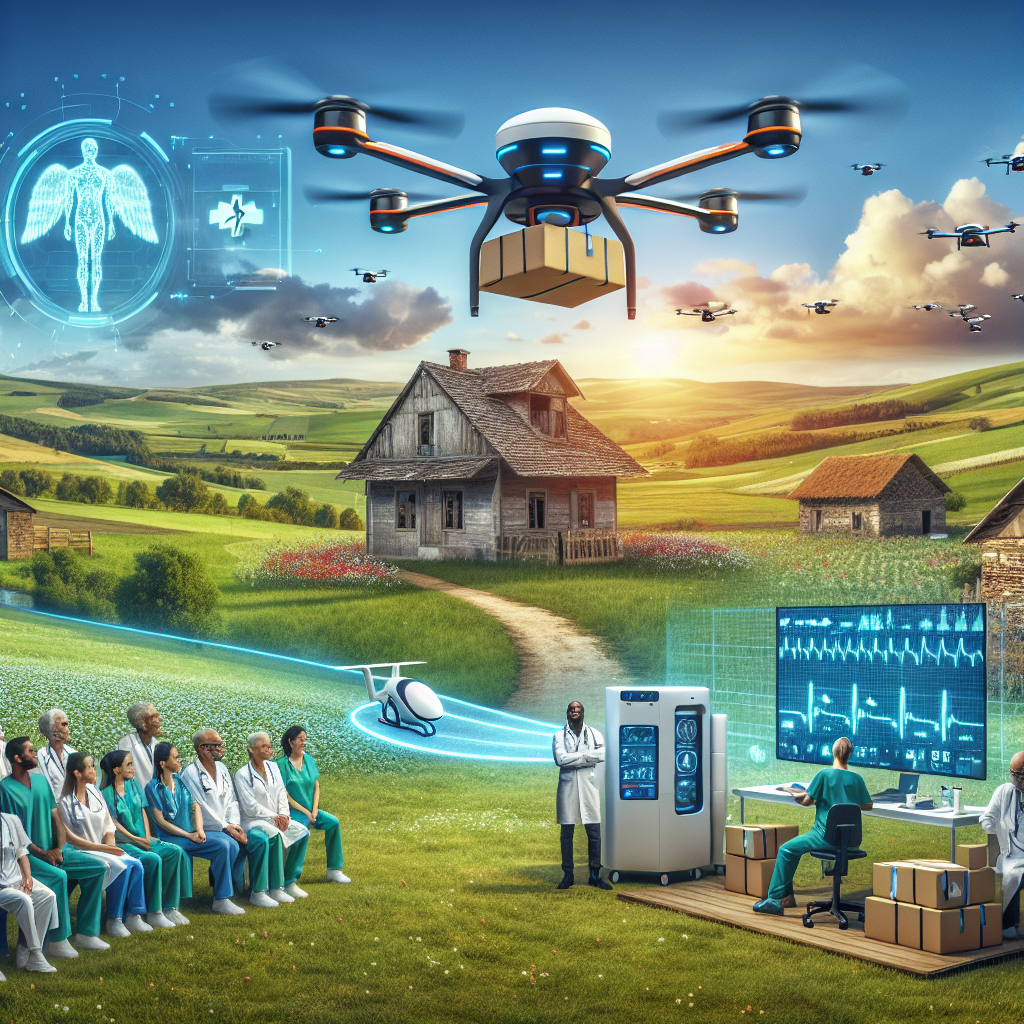Advancements in artificial intelligence (AI) technology have revolutionized the way healthcare is delivered, especially in rural areas where access to medical resources and expertise is often limited. AI has the potential to bridge the gap in healthcare delivery by providing innovative solutions to improve diagnosis, treatment, and patient outcomes. In this article, we will explore how AI is transforming healthcare delivery in rural areas and the benefits it brings to both patients and healthcare providers.
AI in Diagnostics
One of the key areas where AI is making a significant impact in healthcare delivery is diagnostics. AI-powered algorithms are being used to analyze medical images, such as X-rays, CT scans, and MRI scans, to aid in the early detection of diseases. These algorithms can identify patterns and anomalies that may be missed by human eyes, leading to more accurate and timely diagnosis.
In rural areas where access to radiologists and other specialists may be limited, AI can help healthcare providers make more informed decisions about patient care. For example, a study published in the journal Nature Medicine found that an AI system was able to detect breast cancer in mammograms with a similar level of accuracy to radiologists. This technology has the potential to improve cancer detection rates in rural areas where mammography services are scarce.
AI in Telemedicine
Telemedicine is another area where AI is transforming healthcare delivery in rural areas. Telemedicine allows patients to consult with healthcare providers remotely using video conferencing technology. AI-powered chatbots and virtual assistants are being used to streamline the telemedicine process by collecting patient information, scheduling appointments, and providing basic medical advice.
In rural areas where access to healthcare facilities is limited, telemedicine can help patients receive timely medical care without having to travel long distances. AI-powered telemedicine platforms can also integrate with electronic health records (EHRs) to provide healthcare providers with real-time access to patient information, leading to more coordinated and efficient care.
AI in Personalized Medicine
Personalized medicine is an emerging field that aims to tailor medical treatments to individual patients based on their genetic makeup, lifestyle, and other factors. AI is playing a key role in advancing personalized medicine by analyzing large datasets to identify patterns and trends that can inform treatment decisions.
In rural areas where healthcare resources are limited, personalized medicine can help healthcare providers deliver more targeted and effective treatments to patients. For example, AI algorithms can analyze a patient’s genetic information to predict their response to a particular medication, allowing healthcare providers to prescribe the most effective treatment with minimal trial and error.
AI in Preventive Healthcare
Preventive healthcare is another area where AI is making a significant impact in rural areas. AI-powered algorithms can analyze data from wearable devices, such as smartwatches and fitness trackers, to monitor patients’ health status in real-time. These algorithms can detect early warning signs of health issues, such as irregular heart rhythms or changes in blood pressure, and alert healthcare providers to intervene before a serious medical condition develops.
In rural areas where access to preventive healthcare services may be limited, AI can help patients take a more proactive approach to managing their health. For example, AI-powered apps can provide personalized health recommendations based on a patient’s lifestyle and medical history, empowering them to make informed choices about diet, exercise, and other aspects of their health.
FAQs
Q: How is AI improving healthcare delivery in rural areas?
A: AI is improving healthcare delivery in rural areas by providing innovative solutions for diagnostics, telemedicine, personalized medicine, and preventive healthcare. AI-powered algorithms can analyze medical images, streamline telemedicine appointments, tailor treatments to individual patients, and monitor patients’ health status in real-time.
Q: What are the benefits of AI in healthcare delivery?
A: The benefits of AI in healthcare delivery include improved accuracy and efficiency in diagnosis, more coordinated and efficient care through telemedicine, targeted and effective treatments with personalized medicine, and early detection of health issues through preventive healthcare.
Q: Are there any challenges to implementing AI in rural healthcare settings?
A: Some challenges to implementing AI in rural healthcare settings include limited access to high-speed internet and digital infrastructure, a lack of training and expertise in AI technologies among healthcare providers, and concerns about data privacy and security. However, these challenges can be overcome through strategic partnerships, training programs, and regulatory frameworks.
Q: How can patients in rural areas access AI-powered healthcare services?
A: Patients in rural areas can access AI-powered healthcare services through telemedicine platforms, mobile health apps, and wearable devices that integrate AI algorithms. Healthcare providers in rural areas can also collaborate with AI companies and research institutions to implement AI solutions in their practices.
In conclusion, AI is transforming healthcare delivery in rural areas by providing innovative solutions that improve diagnosis, treatment, and patient outcomes. From diagnostics and telemedicine to personalized medicine and preventive healthcare, AI is revolutionizing the way healthcare is delivered in rural communities. By harnessing the power of AI technology, healthcare providers can overcome the challenges of limited resources and expertise to deliver high-quality care to patients in even the most remote areas.

